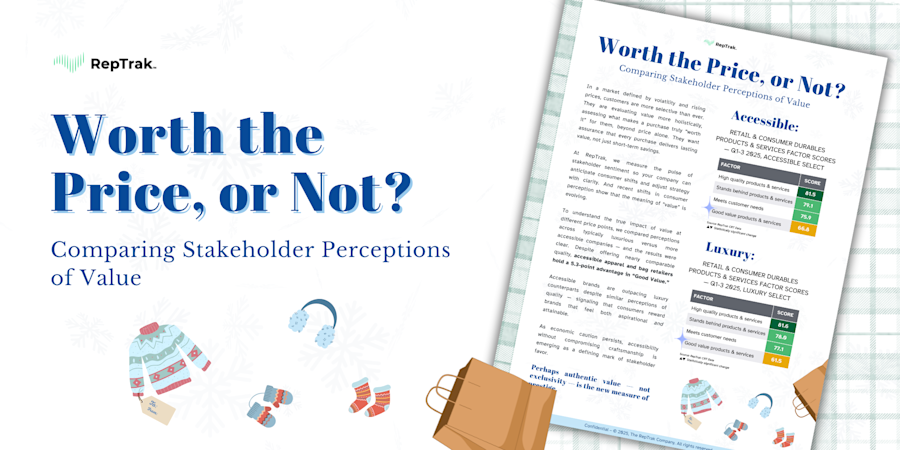5 Lessons for Corporate Communicators from the 2019 U.K. General Election
Blog Post13 Dec, 2019
When the U.K. voted on December 12, 2019, it gave Prime Minister Boris Johnson, and his ruling party, the Conservatives, a significantly increased majority in the House of Commons. The result is a comprehensive endorsement for the Conservative Party, in power since 2010 and now enjoying its largest majority since 1987, and a significant defeat to the opposition Labour Party.
While political campaigning and corporate communications may seem like completely different verticals, they are very much related. Both seek to encourage supportive behaviors—voting, volunteering, and donating in the first instance; buying products, recommending a brand to others, or accepting a position in the second. They both use many of the same communication channels and platforms, as well.
Chief Communication Officers and their teams can learn from the success of the Conservative campaign and failures of the Labour opposition in this general election. Here are five top lessons for corporate communicators from the 2019 U.K. general election.
Leadership matters
Political commentators have long noted that U.K. politics is shifting from a traditional party structure to one more like the one in the U.S., where high-profile party leaders have identities distinct from their own parties. This trend continued in 2019, with other party figures being largely sidelined.
Dedicated supporters commonly (and affectionately) referred to both Johnson and his opponent, Jeremy Corbyn, using just their first names. Each had their own personal reputations—Boris for being plain spoken, direct, and unafraid to court controversy; Jeremy for compassion and empathy for the concerns and frustrations of ordinary people. But Corbyn had weaknesses, too, accused of being soft on anti-Semitism in his party, unclear on his stance on Brexit (the most important issues of the election), and—fighting his second General Election—lacking the same freshness as he once did. The successful Conservative campaign ruthlessly exploited these.
For the U.K.’s smaller parties, too, leadership matters.
The Scottish National Party’s Nicola Sturgeon had a flawless campaign, and her party now dominates Scotland’s constituencies once again.
Liberal Democrat leader Jo Swinson only became party leader in the summer of 2019. She suffered from low familiarity throughout the campaign and for making the unrealistic claim that she could become Britain’s next Prime Minister.
The lesson for corporate communicators: High-profile, effective leaders, whether political or corporate, are a major reputational asset. Promoting and using confident, clear-spoken C-suite leadership helps give a public face to a company. In fact, RepTrak data shows a direct correlation between CEO reputation and wider company reputation.
Stay on message
In the U.K., there are tight restrictions on campaign spending and advertising. Candidates are all but banned from running TV spots, for example. As a result, U.K. political parties are tightly focused on key messages that they repeat and reiterate. Boris Johnson faced criticism for linking every issue and every question back to Brexit (the U.K.’s delayed departure from the European Union), while Jeremy Corbyn repeatedly returned to the need to invest in Britain’s National Health Service and protect it during any post-Brexit trade talks.
Neither leader repeated themselves on these topics accidentally. Instead, the campaigns’ extensive polling, modelling, and focus groups showed these to be the key issues for their current and potential supporters.
The Conservatives’ approach would prove right. The British public really did want to “Get Brexit Done,” and the constant refrain of this simple truth won the party new supporters.
The lesson for corporate communicators: Any company will have multiple messages to communicate about philanthropy, product innovation, improving financial performance, new product launches, environmental initiatives, etc. In fact, it’s easy to overwhelm stakeholders with too many messages. Corporations, like political campaigns, need to focus on the most effective and important messages for their stakeholders.
Follow the data
The stakes in political campaigns are incredibly high. For politicians, a lifetime’s ambition is very publicly achieved or missed over just a few weeks of campaigning. For the parties, whose reason for existence is to achieve electoral success, campaigns determine whether they enjoy political power or face years in political opposition. Liberal Democrat leader Jo Swinson suffered the ultimate defeat: losing her own seat. And for the U.K. as a whole, of course, at stake was the future direction of the entire country.
Because of this, political campaigns rely heavily on data. Whether collected through polling, purchased from third-party aggregators and data agencies, or gathered from digital sources, political campaigners base decisions—such as which spokespeople to use, how to phrase a particular attack line, and which issues to talk about—on data. The data in 2019 proved very accurate: opinion polls consistently showed the Conservatives to lead throughout the campaign, with the on-the-day Exit Poll virtually spot on in its prediction.
U.S. President Barack Obama’s successful 2008 campaign introduced A/B split testing into the political world. Borrowing ideas from Silicon Valley, the Obama campaign tested hundreds of variations of the design of its website, its fundraising emails, and advertisements. The most successful—whether in terms of donations, clicks, or engagement—were kept and the least successful dropped. This data-driven approach was behind President Obama’s 2008 and 2012 successes, and has inspired campaigns on both sides of the Atlantic ever since.
In the U.K. election, because of Facebook’s increased transparency regarding political ads (a move designed to improve Facebook’s own reputation), it was easier than ever to see the process in action. The BBC, for example, ran a regular analysis of what political parties were advertising on the platform. According to their research, each party ran thousands of different ads targeted at different types of voters. Those that proved successful in generating impressions, clicks, or donations were used again. Those that failed to do so were retired.
The lesson for corporate communicators: Reputation is one of the most important assets any company has. Managing it is too important to leave to guesswork. The first step to managing reputation, and taking data-led actions to protect and improve it, is to measure it accurately. RepTrak is a complete system for doing so.
The impact of extinction rebellion and the climate emergency movement
Summer 2019 saw high-profile protests across the globe by the Extinction Rebellion movement, which calls for faster, more urgent action on climate change. From Time magazine Person of the Year Greta Thunberg’s U.N. speech, to grassroots protests in London, the movement has had a significant impact on the 2019 general election.
Both of the main parties in the U.K. made major environmental pledges, from the Conservatives’ commitment to a net-zero carbon footprint for the U.K. to Labour’s Green Industrial Revolution, with the smaller parties making significant environmental pledges too. Broadcaster Channel 4 hosted a debate for party leaders focused only on the environment, echoing CNN’s Climate Town Hall for U.S. Democratic presidential candidates.
All of this is a response to the growing importance of the environment and sustainability for voters. It’s not surprising, then, that the Green Party, a U.K. political party heavily focused on environmental issues, saw its vote total increase by more than 60%.
The lesson for corporate communicators: The environment is more important than ever for consumers and stakeholders, and taking action on sustainability is a minimum requirement for protecting and improving corporate reputation. Creating a corporate sustainability team for your company is a good first step.
Purpose and profits under pressure
The opposition Labour manifesto outlined a number of challenging measures for business. From pledging to delist firms from the London Stock Exchange if they didn’t tackle climate issues, to nationalizing privately owned energy and transport companies, and plans to restrict the role of private healthcare providers. Businesses may be tempted to breathe easy, feeling the risk of increased regulation or tax has passed, with Labour’s defeat.
However, the governing Conservative Party, traditionally seen as supportive of business, proposed a series of business-related measures, too, including restrictions on C-suite executive pay and the introduction of a Digital Services Tax on international technology companies.
Those proposals are an attempt to capitalize on public concern about the behavior of big business and suspicion that multinationals aren’t fairly contributing to the U.K. When Brexit is done, and the government looks for new measures to implement to maintain its popularity, business needs to ensure it isn’t seen as a soft-target or a sector in need of regulation.
While many businesses have well-developed corporate social responsibility schemes, there is growing pressure for businesses to pursue purposes beyond profits. Even the pro-business Financial Times now campaigns for “profits with purpose.”
The lesson for corporate communicators: Just as the American Business Roundtable has endorsed companies seeking to make an impact beyond profits for investors, so businesses in other parts of the world need to be more purposeful in their actions and communications. Companies that take action will enjoy improved reputations and better business outcomes and, with collective voluntary actions, corporates can protect themselves from regulatory risks like those above.
Laurence Stellings is a Vice President based in The RepTrak Company’s London office. He previously worked in the U.K. political polling industry, leading projects in the 2010, 2015, and 2017 general elections, and the Scottish independence and EU membership referendums.
Laurence Stellings Vice President, U.K. and Middle East The RepTrak Company @LaurenceThinks






